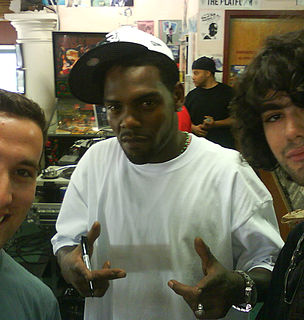A Quote by S. N. Goenka
Every sensation shares the same characteristic: it arises and passes away, arises and passes away. It is this arising and passing that we have to experience through practice, not just accept as truth because Buddha said so, not just accept because intellectually it seems logical enough to us. We must experience sensation’s nature, understand its flux, and learn not to react to it.
Related Quotes
We have to make the first move ourselves rather than expecting it to come from the phenomenal world or from other people. If we are meditating at home and we happen to live in the middle of the High Street, we cannot stop the traffic just because we want peace and quiet. But we can stop ourselves, we can accept the noise. The noise also contains silence. We must put ourselves into it and expect nothing from outside, just as Buddha did. And we must accept whatever situation arises.
Love is not a feeling; it's a sensation. Drinking water when you're thirsty is a sensation, not a feeling. Being in nature or swimming in the sea is a sensation, not a feeling. Lying down when you're tired is sensational, not a feeling, although you may say it feels good. Feeling is an emotional interpretation of experience and these sensations don't need interpretation; they are just good or right. Making physical love rightly is a sensation, not a feeling. So is the love of God. The same goes for joy and beauty; both are sensational.'
If you want to understand suffering you must look into the situation at hand. The teachings say that wherever a problem arises it must be settled right there. Where suffering lies is right where non-suffering will arise, it ceases at the place where it arises. If suffering arises you must contemplate right there, you don't have to run away. You should settle the issue right there. One who runs away from suffering out of fear is the most foolish person of all. He will simply increases his stupidity endlessly.
It is too often believed that a person in his progress towards perfection passes from error to truth; that when he passes on from one thought to another, he must necessarily reject the first. But no error can lead to truth. The soul passing through its different stages goes from truth to truth, and each stage is true; it goes from lower truth to higher truth.
Meditation accepts us just as we are-in both our tantrums and our bad habits, in our love and commitments and happiness. It allows us to have a more flexible identity because we learn to accept ourselves and all of our human experience with more tenderness and openness. We learn to accept the present moment with an open heart. Every moment is incredibly unique and fresh, and when we drop into the moment, as meditation allows us to do, we learn how to truly taste this tender and mysterious life that we share together.
Do not throw away your heart. Keep your heart. Your heart is all that matters ... Throw away your ancestors! ... Throw away your shyness and the anger that lies just a few inches beneath ... Accept the truth! And if there is more than one truth, then learn to do the difficult work -- learn to choose. You are good enough, you are HUMAN ENOUGH, to choose!
I'm my biggest critic. I want there to be no flaws when you hear it. When I think that maybe it's ready, I just hop in my car it's gotta have some bump - and go to corner stores, youngsters on the block, play it for anyone. If they get into it, I get a reaction, the song passes the hyphy test. If it's just cool, we throw it away; it's not going on the record. But if it makes you wanna move - seriously - if it makes you react the same way I felt, then it passes.
Death is nothing to us: for after our bodies have been dissolved by death they are without sensation, and that which lacks sensation is nothing to us. And therefore a right understanding of death makes mortality enjoyable, not because it adds to an infinite span of time, but because it takes away the craving for immortality.
We are all dying, every moment that passes of every day. That is the inescapable truth of this existence. It is a truth that can paralyze us with fear, or one that can energize us with impatience, with the desire to explore and experience, with the hope- nay, the iron-will!- to find a memory in every action. To be alive, under sunshine, or starlight, in weather fair or stormy. To dance with every step, be they through gardens of flowers or through deep snows.
The peace that we are looking for is not peace that crumbles as soon as there is difficulty or chaos. Whether we’re seeking inner peace or global peace or a combination of the two, the way to experience it is to build on the foundation of unconditional openness to all that arises. Peace isn’t an experience free of challenges, free of rough and smooth, it’s an experience that’s expansive enough to include all that arises without feeling threatened.
Intimacy is not trapped within words. It passes through words. It passes. The truth is that intimates leave the room. Doors close. Faces move away from the window. Time passes. Voices recede into the dark. Death finally quiets the voice. And there is no way to deny it. No way to stand in the crowd, uttering one's family language.
Most of us do not understand nuclear fission, but we accept it. I don't understand television, but I accept it. I don't understand radio, but every week my voice goes out around the world, and I accept it. Why is it so easy to accept all these man-made miracles and so difficult to accept the miracles of the Bible?
Christ has something in common with all creatures. With the stone he shares existence, with the plants he shares life, with the animals he shares sensation, and with the angels he shares intelligence. Thus all things are transformed in Christ since in the fullness of his nature he embraces some part of every creature.
Looking at the data and at my drug use and evaluating it carefully just let me see that I wasn't special, but my drug use challenged what I thought about cocaine. Because I would accept when I would say, "What happened to that person?" and someone would say, "They started using cocaine...they went downhill..." I would just accept that, even though I had a different experience and all these other people had a different experience. But I would throw that out because I thought my experience was an aberration.































